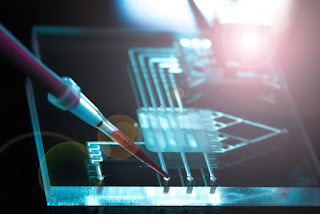Emergence of Covid-19 and Rapid Genetic Evolution of Infectious Diseases to Boost Demand for Biodetection
Biodetection is one of the latest developments in the field of bio-medical science. Many techniques and tools for bio-medical diagnosis and treatment are currently available. Biodetection is a technique that uses sensors to analyze human tissue under a microscope. The sensors used include Sonar, optical flow, radio frequency, infrared light, optical absorption, and absorption filters. Different types of tissues may be analyzed depending on their characteristics such as thickness, type of tissue, and location on the body.
The importance of biodetection to first responders cannot be overlooked. This method is rapidly replacing traditional methods of chemical trauma control. Injuries from chemical exposure can range from minor burns, minor cuts, to life-threatening exposures to dangerous chemicals. The use of biosensing technologies is necessary to assess exposure to harmful chemicals and select the most suitable treatment method.
A military laboratory that addresses biological hazard assessments must include biodetection in its arsenal. Current and emerging biological threats make current and future security and first responder engagements more complicated. Biological incidents that could occur at any time are called "unusual events" (UE) and have the potential to cause significant harm or death if not averted. In response to emerging UEs, several laboratories and agencies have developed and continue to employ state-of-the-art biodetection systems.
Infectious diseases are evolving quickly, genetically. As a result, pathogens may be released into the environment that do not have the capability to resist or even recognize modern health interventions such as chlorine. If a urine sample is collected from an infected individual, it can be analyzed for biological hazards or released into the environment. These biodetection technologies provide real-time assessment of current and emerging infectious agents. Biobanking uses a unique database that contains information on thousands of specimens and can help in response to biological events. Biodetection is essential for tracking of sources of biological samples, for tracking of potential sources of infectious disease, and for tracking the development of antimicrobial resistance to highly resistant pathogen infections.
The emergence of Covid-19 has prompted various countries such as the U.K. and Germany to conduct biodetection studies that show canines are able to sniff out the presence of coronavirus in people. In Germany, eight dogs from the country's armed forces had a 94 per cent success rate in detecting Covid-19 from the saliva of 1,000 people.




Comments
Post a Comment